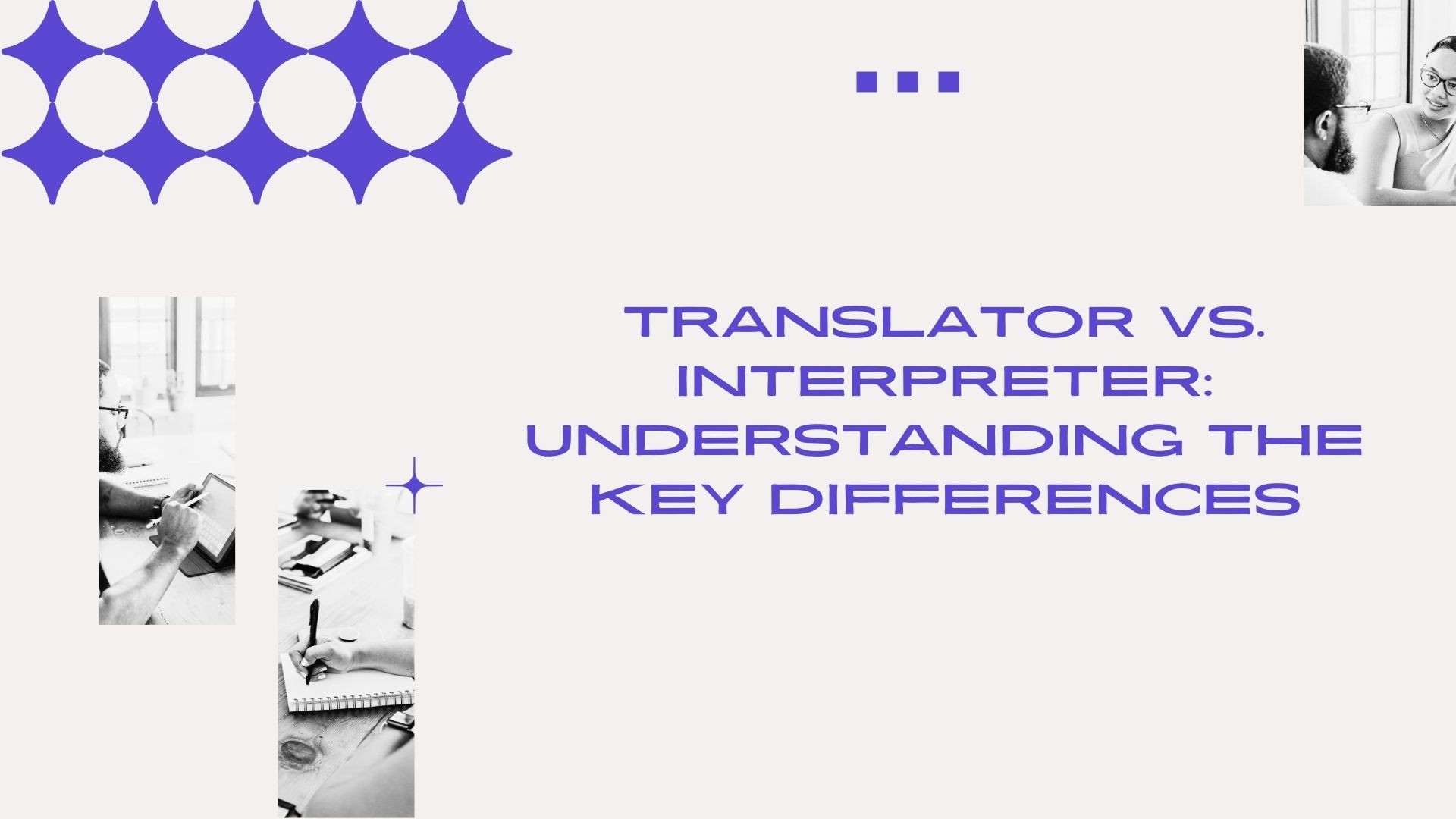Language plays a crucial role in global communication, enabling people from different cultures to connect. However, when it comes to translating spoken or written words, two distinct professions exist: translators and interpreters. While both deal with converting one language to another, their skills, methods, and working environments differ significantly.
In this blog, we’ll explore the differences between translators and interpreters, their required skills, and which profession might be the right fit for you.
What is a Translator?
A translator is a language professional who converts written text from one language to another while maintaining accuracy, tone, and meaning.
Key Responsibilities of a Translator:
• Translating books, legal documents, articles, and marketing materials.
• Ensuring the original tone and style remain intact.
• Using specialized software tools like CAT (Computer-Assisted Translation) tools to enhance efficiency.
• Conducting thorough research to maintain terminological accuracy.
Skills Required for Translators:
✅ Strong writing skills in both source and target languages.
✅ Attention to detail to ensure precision.
✅ Expertise in a specialized field, such as legal, medical, or technical translation.
✅ Proficiency with translation software (e.g., SDL Trados, MemoQ).
Where Do Translators Work?
• Publishing companies
• Legal and medical institutions
• Government agencies
• Freelance or corporate environments
Translators typically work independently and have the flexibility to revise their work before submitting the final version.
What is an Interpreter?
An interpreter is a professional who converts spoken language in real time between speakers of different languages. Unlike translators, interpreters do not work with written text but rather facilitate verbal communication in meetings, conferences, and legal proceedings.
Key Responsibilities of an Interpreter:
• Converting spoken conversations between people in real time.
• Maintaining the original speaker’s tone and intent.
• Processing and delivering information quickly and accurately.
Skills Required for Interpreters:
✅ Strong listening and memory skills to recall details accurately.
✅ Fast thinking and decision-making under pressure.
✅ Excellent pronunciation and clarity in speech.
✅ Ability to remain neutral in sensitive discussions.
Types of Interpretation:
Simultaneous Interpretation – The interpreter speaks while the speaker is talking (common in conferences).
Consecutive Interpretation – The speaker pauses to allow the interpreter to translate (common in legal and medical settings).
Whispered Interpretation – The interpreter whispers translations to a single listener.
Over-the-Phone or Video Remote Interpretation – Used in virtual meetings or customer service interactions.
Where Do Interpreters Work?
• International conferences and summits
• Courtrooms and legal settings
• Hospitals and medical institutions
• Business meetings and diplomatic events
Unlike translators, interpreters cannot revise their work, making their role high-pressure and fast-paced.
Key Differences: Translator vs. Interpreter
Which Career is Right for You?
If you love writing and analyzing text, a career in translation may be the best fit. However, if you enjoy dynamic, real-time communication, then interpretation might be your calling.
Both professions require linguistic expertise and cultural understanding, but they demand different skill sets and working styles.
How AI is Transforming Translation and Interpretation
With advancements in artificial intelligence, tools like VOMO AI are making language conversion more accessible.
What Can VOMO AI Do?
✅ Transcribe and translate audio recordings automatically.
✅ Convert YouTube videos into text in 50+ languages.
✅ Generate AI-powered smart notes for meetings and interviews.
✅ Support professionals in transcription, translation, and speech analysis.
While AI tools like VOMO AI can enhance efficiency, human expertise remains irreplaceable for high-quality translation and interpretation.
If you want to automate transcriptions and translations, try VOMO AI today!



